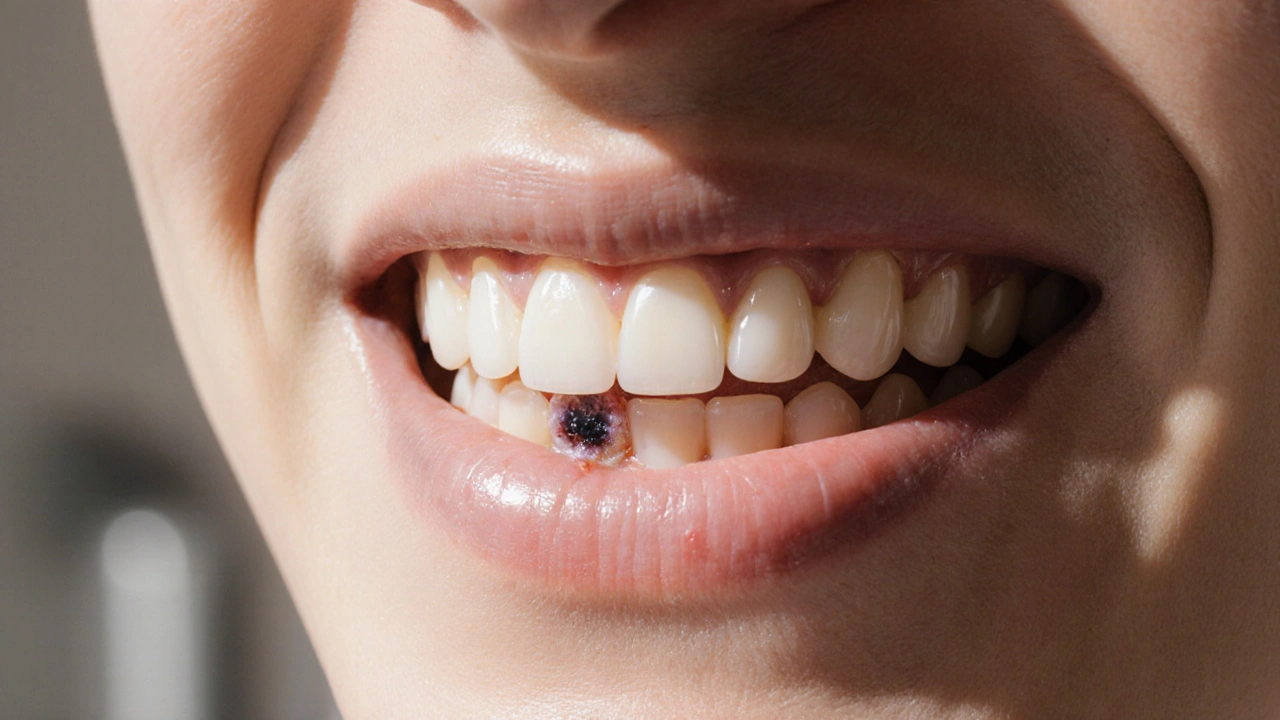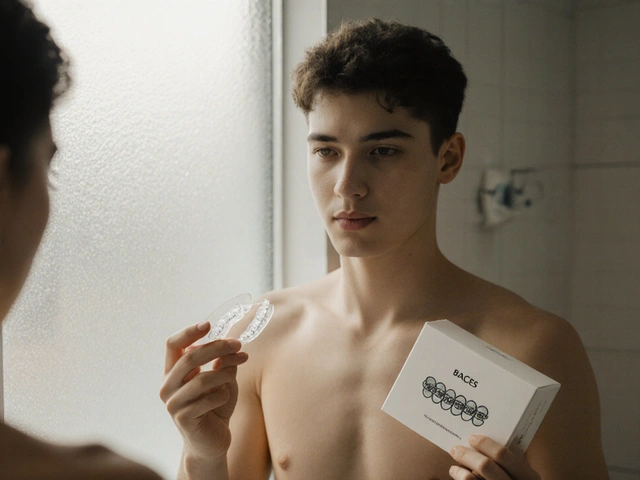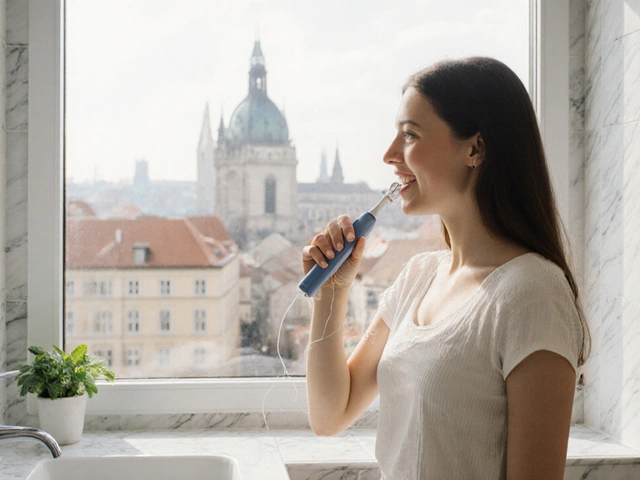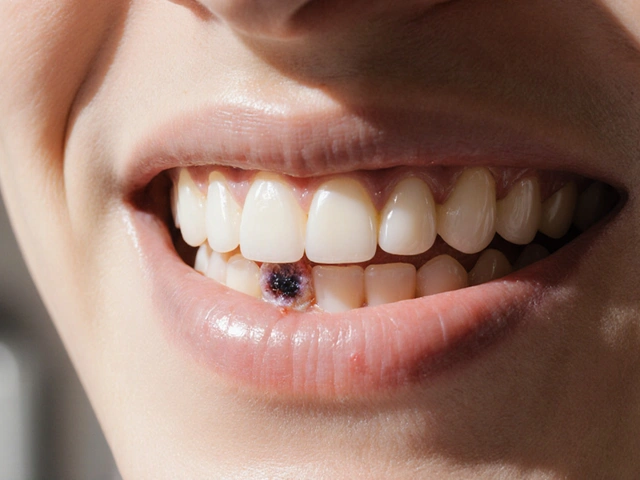Antibiotika v zubní praxi – co potřebujete vědět
When talking about antibiotika, léková skupina, která zabraňuje růstu bakterií a pomáhá léčit infekce. Also known as antibiotické přípravky, it play a key role in dentistry because they can stop a spreading infection before it damages the jaw or the whole body. The connection is simple: antibiotika are prescribed when a zubní infekce, nahromadění bakterií v ústech, které může vést k bolestem a zánětu appears, and they work best together with proper dentální hygiena, denní péče o zuby a dásně, která snižuje riziko infekcí. Without clean teeth, even the best antibiotic can lose part of its effect.
Why do dentists sometimes ask you to take a pill before a simple filling? The answer lies in the concept of prophylaxis – preventing an infection before it even starts. When a cavity is drilled, the open surface becomes a gateway for bacteria. A short course of antibiotics can close that gateway temporarily, giving your immune system a chance to keep the area sterile. That’s why the entity rezistence na antibiotika, schopnost bakterií přežít i po podání antibiotik is a hot topic: overuse weakens the protection and makes future treatments harder.
Kdy jsou antibiotika opravdu nezbytná?
Not every toothache needs a drug box. Simple gum inflammation often clears up with good brushing and flossing. But in cases like an abscess, a broken tooth that reached the pulp, or after a surgical zákrok such as implant placement, the risk of bacterial spread jumps dramatically. Here, the semantic triple "zubní implantáty často vyžadují profilaxi antibiotik" becomes a rule of thumb for many zubaři. The same logic applies to extractions, root canals, or when you have a deep periodontitis – the gum disease can act as a reservoir for harmful microbes, and a short antibiotic burst can protect the surrounding bone.
Another entity that frequently appears together with antibiotics is zubařské nástroje. Sterilized instruments reduce the bacterial load, but when an instrument cannot reach every crevice (as in the case of zubní kámen pod dásní), a post‑procedure antibiotic helps mop up leftovers. This illustrates the triple "zubní kámen může podpořit vznik zubních infekcí" – the more plaque and tartar you have, the higher the chance that bacteria will infiltrate deeper tissues.
From a patient’s perspective, the biggest mistake is stopping the medication early because symptoms improve. Antibiotics follow a specific dosage schedule, and cutting it short gives bacteria a chance to adapt, feeding the resistance cycle. Think of it like a puzzle: each dose is a piece that completes the picture of eradication. Skipping pieces leaves gaps for resistant strains to grow.
Prevention is always cheaper than cure. Regular dentální hygiena – brushing twice a day, using mezizubní kartáčky, and visiting the zubní lékař for kontrola – dramatically cuts down the need for any antibiotic. When you combine this with a balanced diet low in sugary snacks, you lower the risk of demineralizace zubů, which is another entry point for bacteria. The triple "zdravá strava snižuje riziko demineralizace a tím i potřebu antibiotik" perfectly captures this synergy.
For parents, teaching kids proper brushing is the first line of defense. Children who learn to clean between teeth reduce their chances of developing zubní kámen, which in turn means fewer infections and less antibiotic exposure. Schools that include dentální hygienu in their curriculum see lower rates of caries and consequently lower antibiotic prescriptions for dental issues.
In modern practice, some zubaři use rapid tests to decide whether an infection truly needs antibiotics. These point‑of‑care tests detect bacterial markers and help avoid unnecessary prescriptions. The result is a more targeted approach, preserving the effectiveness of antibiotics for when they’re truly indispensable.
Below you’ll find a curated collection of articles that dive deeper into each of these topics – from how to recognize a zubní infekce, through the role of dentální hygiena in preventing rezistence, to practical tipy pro správné užívání antibiotik po zákroku. The goal is to give you a clear picture of when antibiotics help, when they’re overkill, and how everyday habits keep you off the prescription shelf.
Jak účinně léčit zánět okostice zubu - praktický průvodce
Od Stanislav Příhoda Zapnuto 5 říj, 2025 Komentáře (0)

Praktický návod, jak rozpoznat a léčit zánět okostice zubu. Obsahuje domácí tipy, profesionální možnosti, srovnání i prevenci pro dlouhodobé zdraví úst.
Zobrazit více




